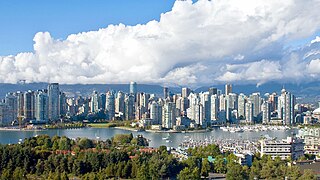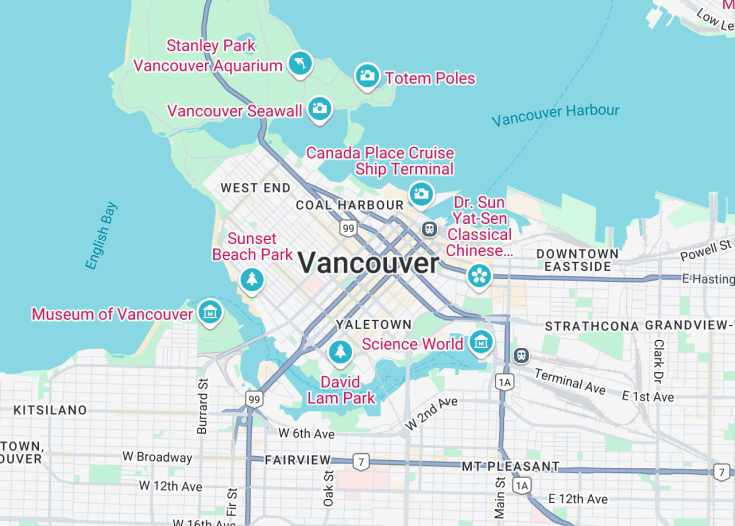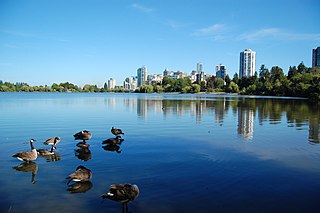Vancouver, nestled between the Pacific Ocean and the stunning Coast Mountains, stands out as a vibrant, cosmopolitan city rich in natural beauty and cultural diversity. This bustling seaport in British Columbia is renowned for its scenic landscapes, from lush parks to breathtaking waterfronts, making it a top destination for travelers seeking a blend of urban sophistication and outdoor activities. Its well-preserved environment, combined with a thriving arts scene and diverse culinary offerings, makes Vancouver an enticing destination for tourists worldwide.
When visiting Vancouver, ensure to explore Stanley Park. It’s not just a park but an epic urban escape with forests, beaches, and cultural sites.
Plan your visit between April and October when Vancouver’s weather is most favorable for enjoying both the city and its natural surroundings.
Top things to do & see in Vancouver
Select the following sights and activities to discover best tickets and tours available in Vancouver.
Vancouver: Gateway to the Pacific Northwest
| Country | Canada |
| Time in Vancouver | GMT-7 |
| Language spoken | English |
| Population | 631,486 (source: 2021 Census) |
| Currency | Canadian Dollar (CAD, $) |
| Airports |
|
Vancouver, located in the province of British Columbia, Canada, is a vibrant city renowned for its breathtaking natural beauty and cultural diversity. Nestled between the Coast Mountains and the Pacific Ocean, it boasts a stunning backdrop that attracts tourists from around the globe. Its mild climate and scenic landscapes are perfect for outdoor activities, ranging from skiing and snowboarding in the winter to kayaking and mountain biking in the summer.
Vancouver is also a center for the arts and culture, featuring numerous theaters, galleries, and concert venues that showcase local and international talent. The city’s cultural diversity is reflected in its culinary scene, where you can enjoy everything from exquisite sushi and dim sum to artisanal coffees and craft beers.
The economy of Vancouver is robust, with key industries including film and television production, technology, and tourism. It is often referred to as “Hollywood North” due to its popularity as a filming location.
Moreover, Vancouver is a gateway to other major destinations in the Pacific Northwest, including Seattle in the United States and Calgary, the gateway to the Canadian Rockies. The city’s efficient public transportation system and status as one of the most walkable cities in the world make it easy for residents and visitors alike to enjoy what Vancouver has to offer.
In addition to its modern amenities, Vancouver is committed to sustainability, aiming to become the greenest city in the world by 2020 through various eco-friendly initiatives. This approach enriches the quality of life and preserves its natural settings, which continue to draw visitors who seek both urban experiences and natural escapes.
Where is Vancouver?
Vancouver is located in the southwestern corner of British Columbia, Canada, bordered by both the Pacific Ocean and the Coast Mountains.
Distances:
| Route | Distance by car | Time by car |
|---|---|---|
| Vancouver to Victoria | 70 mi (113 km) | 3h 30min (including ferry) |
| Vancouver to Whistler | 75 mi (121 km) | 1h 50min |
| Vancouver to Seattle | 140 mi (225 km) | 2h 45min |
What is Vancouver famous for?
Vancouver is famous for its scenic views, vibrant cultural life, and status as a top destination for film production, outdoor sports, and green initiatives.
History
Pre-Colonial Period (Before 1791)
The region where Vancouver now sits has been inhabited for thousands of years by the Musqueam, Squamish, and Tsleil-Waututh Nations. These First Nations people lived harmoniously with the land, benefiting from the rich resources of both sea and forest, which supported a complex social structure and vibrant culture. Art, mythology, and a deep connection to the environment were integral to their way of life.
The Exploration Era (1791-1850)
European exploration began with the arrival of Spanish navigators José María Narváez and Francisco de Eliza, who charted parts of the coastline in 1791 and 1792, respectively. The area was later explored by British Captain George Vancouver in 1792, who provided detailed maps and further established European claims to the region. This period marked the beginning of increased European influence in the Pacific Northwest.
The Colonial Period (1851-1871)
With the lure of gold and the promise of rich resources, more settlers arrived starting in the mid-19th century. In 1858, the Fraser Canyon Gold Rush led to significant population growth and the development of settlements. Vancouver Island was initially colonized separately from the mainland, each eventually forming part of British Columbia, a colony established in 1858 and joining the Canadian Confederation in 1871.
Modern Development and Growth (1872-Present)
The arrival of the Canadian Pacific Railway in 1886 was a pivotal moment for the area, contributing to the incorporation of Vancouver as a city in 1886. Since then, Vancouver has grown into a major urban center known for its high standard of living and cultural diversity. Celebrated for its landscapes and as a center for arts and environmental activism, Vancouver continues to evolve, shaping and influenced by global and local dynamics alike.
Visit Vancouver
What to see and do in Vancouver, British Columbia (Canada)
Vancouver, nestling between the Pacific Ocean and the stunning Coast Mountains, offers a blend of cultural and outdoor activities that captivate visitors. Explore the vibrant public markets at Granville Island, wander through the vast Stanley Park, or admire contemporary art at the Vancouver Art Gallery. For a taste of nature, drive up to Grouse Mountain for breathtaking views of the city or visit Capilano Suspension Bridge Park for an exhilarating walk above the treetops.
Annual Highlights in Vancouver
Vancouver is bustling with events year-round, reflecting its cultural diversity and love for festivities. The Vancouver International Film Festival, held each fall, showcases local and international films and draws cinephiles from around the world. Music lovers relish the Vancouver Folk Music Festival in July, while the vibrant Vancouver Pride Parade and Festival brightens the city every August.
Best time to visit Vancouver
The best times to visit Vancouver are Spring (April to June) and Fall (September to October) when the weather is comfortable and the city isn’t overcrowded. These months also coincide with some of the city’s vivid cultural festivals and outdoor activities that take advantage of its stunning natural landscapes.
Is Vancouver worth visiting?
Indeed, Vancouver is worth visiting, offering a rare blend of urban sophistication and lush natural scenery that appeals to a variety of tastes and interests. Whether you’re drawn to the arts, interested in exploring diverse cultures, or are an outdoor enthusiast, Vancouver provides an enriching experience that seamlessly integrates the comforts of a modern city with the tranquility of nature.












